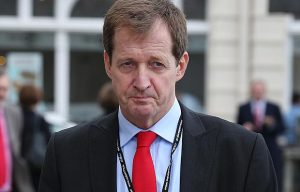Chilcot blames Tony Blair’s decision for creating jihadi threat in West

TONY Blair was explicitly warned by intelligence services six months before invading Iraq that terrorists could rise from the ashes of war, the Chilcot Report has revealed.
The inquiry rejected the then PM’s claim he could not have known a bid to topple Saddam Hussein by force could have caused greater instability in the region – allowing fanatics to take hold.
Sir John Chilcot said risks of internal strife, regional instability and the burgeoning of al Qaeda in Iraq “were each explicitly identified” before the invasion was launched.
From 2002 the Foreign Office and intelligence services sounded the alarm that armed intervention could create an “easier environment for terrorists”.
A further paper later that year - shared with the US officials - even predicted the rise of extremist groups like ISIS to take advantage of the post-war chaos.
Sir John’s inquiry found Britain's planning for the occupation of four provinces in south-eastern Iraq following the 2003 war was "wholly inadequate”.
Inquiry chairman Sir John Chilcot found that information available to ministers gave a "clear indication" of the risks associated with the occupation, including extremist violence, inadequate US planning and British failure to influence it, and a lack of international assistance without a UN resolution backing the invasion.
But he concluded: "The government, which lacked both clear ministerial oversight of post-conflict strategy, planning and preparation, and effective co-ordination between government departments, failed to analyse or manage those risks adequately.
"Mr Blair, who recognised the significance of the post-conflict phase, did not press President Bush for definite assurances about US plans, did not consider or seek advice on whether the absence of a satisfactory plan called for reassessment of the terms of UK engagement and did not make agreement on such a plan a condition of UK participation in military action."
Mr Blair gave evidence to the inquiry that it was not possible to foresee at the time of the invasion Iraq's post-war collapse into sectarian fighting, insurgency and violence, much of it stirred up by neighbouring Iran and the al Qaida terror group.
But Sir John said: "We do not agree that hindsight is required. The risks of internal strife in Iraq, active Iranian pursuit of its interests, regional instability and al Qaida activity in Iraq were each explicitly identified before the invasion."
The report found that Britain attempted to persuade US president George Bush that the United Nations should lead the interim post-conflict administration to govern Iraq after Saddam's removal.
After Washington rejected this option, the Government succeeded only in the "less ambitious goal" of getting White House agreement to accept UN authorisation of a coalition-led administration.
As the military action began, ministers and officials were working on the assumption that there would be "a well-executed US-led and UN-authorised operation in a relatively benign security environment".
But the inquiry found that ministers should have been aware of a "significant risk" that this would not be the case.
Its report stated: "Before the invasion of Iraq, ministers, senior officials and the UK military recognised that post-conflict and military operation were likely to be the strategically decisive phase of the coalition's engagement in Iraq.
"UK planning and preparation for the post-conflict phase of operations, which rested on the assumption that the UK would be able quickly to reduce its military presence in Iraq and deploy only a minimal number of civilians, were wholly inadequate.
"The information available to the Government before the invasion provided a clear indication of the potential scale of the post-conflict task and the significant risk associated with the UK's planned approach."
RELATED STORIES
Ministers were "aware of the inadequacy of US plans and concerned about the inability to exert significant influence on US planning" but Mr Blair "over-estimated" his ability to influence US policy, the report found.
"He did not establish clear ministerial oversight of UK planning and preparation," said Sir John. "He did not ensure there was a flexible, realistic and fully resourced plan that integrated UK military and civilian contributions and addressed the known risks.
"The failure in the planning and preparations continued to have an effect after the invasion."










